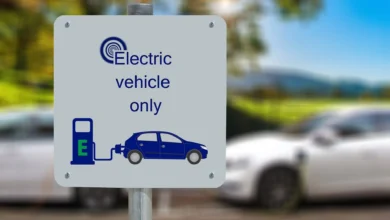
BasiGo has achieved a significant milestone by launching Kenya’s first pilot program for electric matatus operating on inter-city routes. This groundbreaking initiative extends clean transport solutions beyond Nairobi’s urban boundaries, marking a pivotal moment in Kenya’s sustainable transportation evolution.
Partnership with Leading Transport SACCOs
The pilot program operates through strategic partnerships with two prominent transport cooperatives. 4NTE SACCO will deploy BasiGo electric matatus on the Nyahururu-Nyeri and Nyahururu-Nakuru routes, while Manchester Travellers Coach SACCO will operate along the crucial Thika-Nairobi corridor. These routes represent some of Kenya’s busiest inter-city connections, making them ideal testing grounds for electric vehicle viability in regional transport.
The electric vans come in two configurations: 16-seat and 19-seat models, designed specifically for Kenya’s matatu market requirements. This diversification allows SACCOs to choose vehicles that best match their operational needs and passenger demand patterns.
Technical Specifications and Infrastructure
The electric matatus boast impressive technical capabilities, offering a range of up to 300 kilometers on a single charge with a rapid 1.5-hour recharge time. This specification addresses one of the primary concerns for inter-city operations where longer distances and limited charging infrastructure have historically posed challenges for electric vehicle adoption.
To support seamless inter-city operations, BasiGo has strategically installed DC fast charging stations in Nyahururu and Thika. These charging points ensure that vehicles can maintain operational schedules without significant downtime, addressing the critical infrastructure gap that has previously hindered electric vehicle expansion beyond urban centers.
Innovative Financing Model
BasiGo’s Pay-As-You-Drive lease model remains central to the inter-city expansion. This financing approach significantly lowers the cost barrier for transport operators seeking to electrify their fleets, eliminating the substantial upfront capital investment typically required for electric vehicle acquisition. The model allows SACCOs to transition to electric mobility while maintaining cash flow stability during the adoption phase.
Moses Nderitu, Managing Director for Kenya at BasiGo, emphasized the historical significance of this development: “We are delighted to extend electric mobility beyond Nairobi and electrifying an iconic part of Kenya’s history – the matatu. By partnering with visionary SACCOs like 4NTE and Manchester, we’re showing that electric mobility is not only possible but practical for intercity and inter-county transit.”
Local Assembly and Economic Impact
BasiGo’s commitment extends beyond vehicle deployment to local manufacturing capabilities. The company plans to locally assemble these electric vans in Kenya, creating substantial opportunities for job growth and skills development within the country’s emerging clean energy sector. This approach aligns with Kenya’s broader industrialization goals while building domestic capacity in electric vehicle manufacturing.
The company will maintain its comprehensive after-sales support framework, providing full servicing and maintenance for the electric vans, ensuring operators have reliable technical support throughout the vehicle lifecycle.
Industry Response and Future Expansion
Wilfred Daniel Kimotho, Chairman of 4NTE Sacco, expressed enthusiasm for the technological advancement: “We are excited to be early adopters of this technology, especially along inter-city and inter-county routes. This is about embracing innovation and delivering better service to our customers. This partnership places us at the forefront of a transport revolution which is electric, efficient, and built for the future.”

Scaling Ambitions
BasiGo has set ambitious deployment targets, aiming to introduce over 1,000 electric vans across Kenya in the coming years. This expansion supports Kenya’s climate commitments while addressing regional mobility needs and positioning the country as a model for clean, inclusive transport solutions across Sub-Saharan Africa.
The pilot program represents a crucial step in demonstrating electric vehicle viability for Kenya‘s inter-city transport sector, potentially catalyzing broader adoption across the region’s public transport systems.






